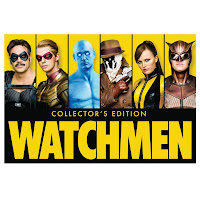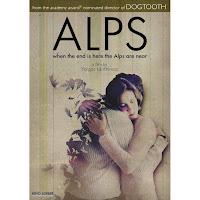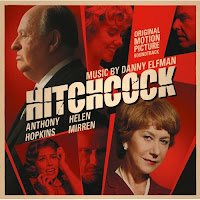the traveler's resource guide to festivals & films
a FestivalTravelNetwork.com site
part of Insider Media llc.
Film and the Arts
Film Review: "The Hobbit" Stretches Too Little Too Far
- Details
- Parent Category: Film and the Arts
- Category: Reviews
- Published on Tuesday, 18 December 2012 20:45
- Written by Matt Oakes
The Hobbit: An Unexpected Journey
Directed by Peter Jackson
Starring Martin Freeman, Ian McKellan, Richard Armitage, Andy Serkis, James Nesbitt, Ken Stott, Cate Blanchett, Ian Holm, Christopher Lee, Hugo Weaving, Elijah Wood
With The Hobbit: An Unexpected Journey, director Peter Jackson has bitten off more than he can chew. Jackson has to reinvest his audience with a new and somewhat minor quest while introducing an entirely novel and risky technological advancement.
The Hobbit details the journey of hobbit Bilbo Baggins (Martin Freeman), wizard Gandalf (Ian McKellen) and a company of dwarves led by warrior prince Thorin Oakenshield (Richard Armitage) as they embark towards the conquered dwarf palace carved into the Misty Mountains to reclaim a vast treasure stolen by the malevolent dragon, Smaug. The travelers encounter one misplaced affair after another and between the orcs, wargs, mountain trolls, storm giants, goblins, a mysterious necromancer and disapproving elves, the tale feels overstuffed and a little inorganic.
With so much going on, it sometimes becomes languid and monotonous but the visual effects, character and set design, and lavish costumes create a stunning backdrop for the tale to unfold which is even more pronounced when seen in high-frame rate 3D.
The advent of high frame rate -- 48 frames per second (FPS) -- technology came on the heels of complaints that 3D films shot at the industry standard (24 FPS) are shutter strobed when the camera is panning, particularly during action sequences. But do the consequences of higher frame rates outweigh the positives?
The answer is… kind of. 48 FPS presents a hyperrealism that makes camera adjustments completely unnoticeable but is distracting to the inaugural eye and, at times, uncomfortably jarring.
In scenes where characters are talking, or more notably, writing, their gestures seem unnaturally accelerated and physically inconsistent. At best, this goes unnoticed and at its worst, looks like a hi-def home video shoot.
During the action sequences though, it works brilliantly. Every blade swing is crystal clear, every slain goblin sprawling from a cliff is beautifully articulated and the sweeping camera movements create sequences that seem painterly in their scope and motion.
People typically resist tech advancement at first, from the use of commercial airplanes to iTunes updates, so it’s hard to say what the real value of this technology is. Is a commercial and critical backlash symptomatic of a natural resistance to the new or is this a more definitive rejection?
One thing is clear, it’s going to take some adjustment for the uninitiated to accept high frame rate films, a process that isn’t going to happen overnight.
But technology is not the only thing on display here and unfortunately the story can be, at turns, equally lackluster and divisive.
Whereas The Lord of the Rings was surprising touching, its emotional resonance is almost entirely absent here. The bond of the original fellowship rendered the trilogy a record-breaking 11 Oscar wins (The Return of the King) but there is little earned about the relationships in this prequel.
The hefty troop of dwarves are more caricatures than fleshed-out people and the return of Gandalf, played by McKellen, is disappointingly amiss. The inimitable light has gone from his eyes as it has from the series itself.
While a handful of cameos from familiar faces may stir nostalgia for the original triad, it rarely serves the film effectively. An introductory scene that features a glimpse of a virginal Frodo is fine but entirely unnecessary to the plot of this tale. Freeman (Sherlock) however is perfectly cast as Bilbo and remains the most promising aspect of this film’s journey.
The standout of the film though is the glorious return of Gollum, played with wit and panache by series regular Andy Serkis (The Lord of the Rings, Rise of the Planet of the Apes). While Bilbo may be stealing Gollum’s precious ring, Serkis is stealing the scene.
While nothing here is egregious, The Hobbit fails to live up to the massive heights of one of the greatest film trilogies of all time. Although it’s better than your average blockbuster both in terms of its visual razzle-dazzle and plotting, it isn’t destined to join the ranks of unforgettable classics.
The end product is a loose hodgepodge of scenes, many of which could have been left for the blu-ray extended editions. Had Jackson focused more on storytelling and thoughtful character development, The Hobbit would have become a much tighter and purposeful film.
December '12 Digital Week III
- Details
- Parent Category: Film and the Arts
- Category: Reviews
- Published on Sunday, 16 December 2012 10:00
- Written by Kevin Filipski
December in NYC: Holiday Music (and more) at Carnegie, Guggenheim, Met Museum
- Details
- Parent Category: Film and the Arts
- Category: Reviews
- Published on Friday, 14 December 2012 10:00
- Written by Kevin Filipski
Rotunda Holiday Concert
December '12 Digital Week II
- Details
- Parent Category: Film and the Arts
- Category: Reviews
- Published on Sunday, 09 December 2012 05:00
- Written by Kevin Filipski
More Articles...
Newsletter Sign Up









































